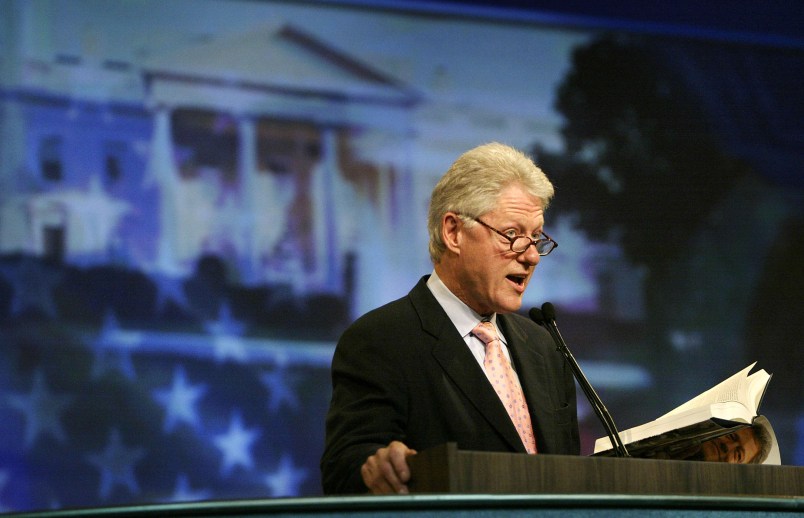On Thursday, White House Senior Aide Jared Kushner left quite the impression at his rare press briefing appearance as he insisted that the National Strategic Stockpile was for “our” use, not the states’.
“The state still has a stockpile and the notion of the federal stockpile was it’s supposed to be our stockpile,” Kushner said at a briefing about the coronavirus pandemic. “It’s not supposed to be states’ stockpiles that they then use.”
“So I would just encourage you, when you have governors saying that the federal government hasn’t given them what they need, I would just urge you to ask them, ‘well have you looked within your state to make sure that you haven’t been able to find the resources?’” he continued.
Eagle-eyed journalists quickly spotted language being amended on a Health and Human Services webpage to come into line with Kushner’s comments. Still, government websites and old documents pointed to the true intent of the stockpile: to be there in an emergency for state and local officials who lack sufficient supplies.
President Donald Trump addressed Kushner’s comments in a Friday press conference.
“‘Our, our,'” Trump mimicked. “It means the United States of America. And then we take that ‘our’ and we distribute it to the states.”
“The federal government needs it too, not just the states,” he added, yelling at the reporter.
Still, Trump and Kushner’s bizarre twist on the stockpile’s intentions is but a blip in the stockpile’s 22-year history.
It started when former President Bill Clinton picked up a thriller called The Cobra Event by Richard Preston. In it, a bioterrorist targets the United States with a virus that fused the common cold with smallpox. As the disease tears through New York City, victims succumb to grisly “autocannibalistic” tendencies.
Per the New York Times, Clinton was spooked enough to ask the FBI if such a thing could actually happen.
“In April 1998, as a result of having read the Richard Preston novel, The Cobra Event, the president held a meeting with a group of scientists and Cabinet members to discuss the threat of bioterrorism,” wrote terrorism studies expert Martha Crenshaw in her essay in “Terrorism: Critical Concepts in Political Science.”
“The briefing impressed Clinton so much that he asked the experts to brief senior officials in DOD and HHS.”
That led to the stockpile’s birth: a line in the October 1998 omnibus emergency appropriations package granting $51 million “for pharmaceutical and vaccine stockpiling activities at the Centers for Disease Control and Prevention.” It was known then as the National Pharmaceutical Stockpile.
The stockpile first came to use as the country held its breath for Y2K, an issue with how computers dates were programmed that was expected to wreak havoc as the new millennium rolled over.
“They were afraid that there was going to be an interruption of supplies to hospitals and to the clinics,” said Tom Jackson, then working in the strategic logistics branch for the stockpile, in an HHS video. “So they decided, the U.S. Government decided to put together a cache of material that could be used to supplement those organizations if there was an eruption and supply because of the the Y2K changeover.”
Sue Gorman, science branch chief, added that all they had was “a handful of people to start with and we had a 50 million dollar budget to create a stockpile.”
Since then, the stockpile has come into Americans’ lives in accordance with the country’s greatest disasters, from Hurricane Katrina to 9/11.
Its stores were seriously depleted during the Obama administration. According to a Health Security study, 75 percent of respirators and face masks in its stockpile were used to protect health-care workers during the 2009 swine flu outbreak.
Per USA Today, it was never fully restocked.
And that’s where the stockpile stands today, as its stores are called into use once more to help protect Americans against the newest, and very nonfictional, global threat: the coronavirus pandemic.







Shorter version: Trump and Kushner are blatantly lying. Again. As always,
Azar: “I want to thank President Trump for his bold, decisive leadership in this fight against grisly autocannibalistic tendencies.”
(“And when I say there are ‘no’ grisly autocannibalistic tendencies in the US Navy, I mean there is a certain amount.”)
Are we sure Jared isn’t Donnie’s spawn, vs Ivanka?
it makes one wonder: Are there any autocannibalistic tendencies that are not grisly?
Are there examples of dainty, heartwarming autocannibalistic tendencies?
“Our use” Obviously means the deserving as the Trump family understands deserving as opposed to the undeserving according to the same metric.